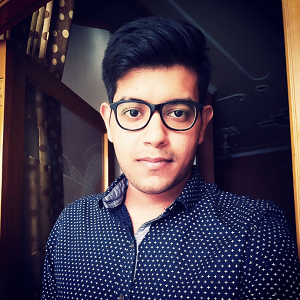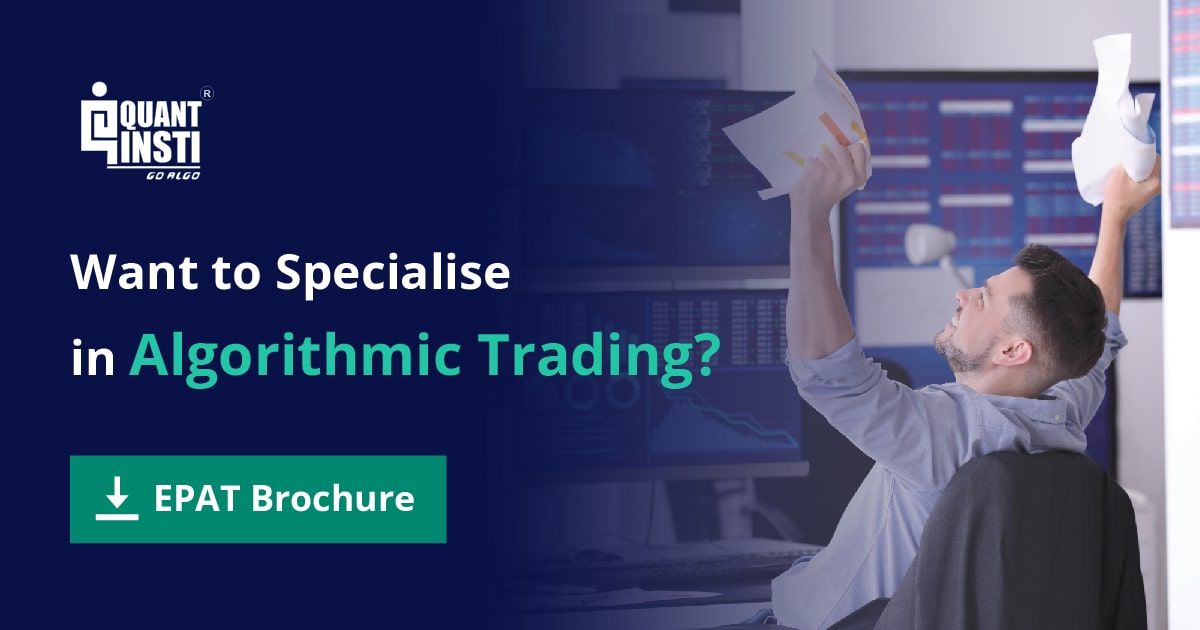“The beautiful thing about learning is that nobody can take it away from you.” - BB King
As an avid music enthusiast himself, EPATian Dayal shares the same sentiments as not only music icons, but anybody who aspires to pursue their dreams. A Quant Developer at Man Group, London, UK, he previously worked as a Quantitative Developer at Algante Technologies, Dubai.
He has done a Masters in Financial Mathematics from Queen Mary University of London, London, and is currently pursuing a Diploma in Music Production from Point Blank Music School. He has multiple certifications from various institutes and was also the topper in his batch at EPAT.
Dayal shares his incredible journey into this world of algorithmic trading and how he made it possible.
Hi Dayal, tell us about yourself!

Hi! I’m Dayal Madan. I am currently based in London, working as a Quant Developer at Man Group.
I am also currently pursuing a diploma in music production. I listen to a lot of genres of music like EDM, trance music, house and techno. My favourite artist as of now is Eric Prydz.
I grew up in a small town in India, near Nainital. While growing up, I learnt about money and trading commodities from my father and grandfather, as this was their business.
We would buy commodities and then sell them to the big manufacturers, making a small profit in the process. However, this whole trade is not very systematic, and there are multiple risks involved, for example, inventory risk, liquidity risk, etc.
That's how my trading journey began. I started to learn how the whole trade took place, as well as what else was involved. That's how I got more interested in stock markets.
During the COVID-19 pandemic, I was working in Dubai with Algante Technologies. We were shifting towards remote working even before the pandemic. So, in terms of work, it had little impact on our lifestyle.
However, due to the market's high volatility, there was a constant fear and anxiety over what would happen next in the market. The last pandemic was in the 1920s, so this was completely new and unexpected.
How did this shift from Math to Music and now Algorithms happen?
I always wanted to have a career in IT, software, and software development. That was what I had in mind when I was growing up. During my engineering, I lost some money in a pyramid scheme.
So, I started looking at ways to get it back and that’s the first instance where I got introduced to exchange-based trading. I started trading randomly in Forex markets on a meta trader platform and coded my own Expert Advisors to automatically execute trades based on set rules. I was able to make a decent profit before losing it all. So that's how I got interested in this algorithmic trading.
I was fortunate enough that after my graduation, I got a chance to work at a quant trading firm in Delhi, where I learnt more about trading algorithms and how they are executed. My previous trading experience and knowledge of programming helped me land this job.
Slowly and steadily my team and I started to experiment with multiple things. We've been able to build a fully automated execution platform. We also built a fully automated research platform to create models automatically without having to require a researcher.
This fueled my journey toward algorithmic trading. Through extensive research to increase my knowledge and skills, I came across the Executive Programme in Algorithmic Trading (EPAT).
I went through the curriculum and it looked really interesting. There were a few modules which I was interested in like market microstructure, and Python for trading as I never had any direct experience with Python before. EPAT assisted me in studying Python, which enhanced my learning.
My music journey began with a music festival. I got interested in electronic music and one day my friends and I decided to attend a music festival, something which I had never done before.
That experience at the music festival made me research about it online and how I can get started, fiddling around with the computers. To stay disciplined, I got into a music production Master diploma course and it’s been going well so far.
I would say that it all just came together. All you have to do is just look towards it, and don't think of the consequences if you are passionate about something.
What has your journey learning Algo Trading been like?
Learning algo trading had been a lot of fun. You learn statistics and mathematics, and you require some working-level knowledge of programming.
What I was hoping to learn from EPAT was to improve the execution algorithms that we had at that time. EPAT helped me understand how trading psychology works at the most granular level. With the newly gained knowledge of a market microstructure, we were able to have a system to optimally place limit and market orders.
I was also interested in financial trading strategies. To quickly test some strategies and determine whether they would work or not, you'll need a basic understanding of an easy green programming language, such as Python, which allows you to test the system quickly, rather than C++, which requires you to first build the infrastructure and then test whether it would work or not.
EPAT helped me have a good understanding of Python, and how to test out multiple different strategies that are available. When you test those strategies, you would also have different ideas on how to tweak them.
EPAT stands out because, in all the other courses, you basically could just take a quiz and receive a certificate. EPAT on the other hand follows a proper curriculum and modules and conducts exams to test our learning. This makes the learner learn something more than a certificate added to your resume.
Which feature of EPAT do you like the most?
EPAT has a lot of good features like its curriculum, modules, faculty, lifetime access, and the best one - the support provided to us.
Niraj was assigned to me as my support manager and he has provided me with immense support. We use to have chats about anything from my queries regarding the course or simple how our day went and our conversations were very candid. Your support manager becomes your companion throughout this learning journey.
Another thing that I love about EPAT is the lifetime access provided to us. There was the seminar on reinforcement learning in finance integration and I can still access it because you often go back to what you have learnt. The world of trading is always changing. Some courses only provide a limited subscription where they'll be able to access it only once.
But with EPAT, be it five years down the line, or 10 years down the line, you will still be able to have access to the modules with the latest updates.
What’s your message to all the aspiring Quants out there?
When you're working on a trading model, one of the most important things to consider is not to focus on the noise, but on the signal. I believe we can apply that to our lives as well - whatever people say is just noise to us.
Focus on what you have to do and what you can do to achieve it.
Yours is truly an incredible journey, Dayal. We hope you complete your music production with flying colours and pursue your trading aspirations with zest and excellence. Congratulations on earning a Certificate of Excellence as well as, on topping your batch of EPAT. We wish you all the best for your future.
If you too desire to equip yourself with lifelong skills which will always help you in upgrading your trading strategies, this automated trading course is just what you need. With topics such as Statistics & Econometrics, Financial Computing & Technology, and Machine Learning, it ensures that you are proficient in every skill required to excel in the field of trading. Check out EPAT now!
Disclaimer: In order to assist individuals who are considering pursuing a career in algorithmic and quantitative trading, this success story has been collated based on the personal experiences of a student or alumni from QuantInsti’s EPAT programme. Success stories are for illustrative purposes only and are not meant to be used for investment purposes. The results achieved post-completion of the EPAT programme may not be uniform for all individuals.

